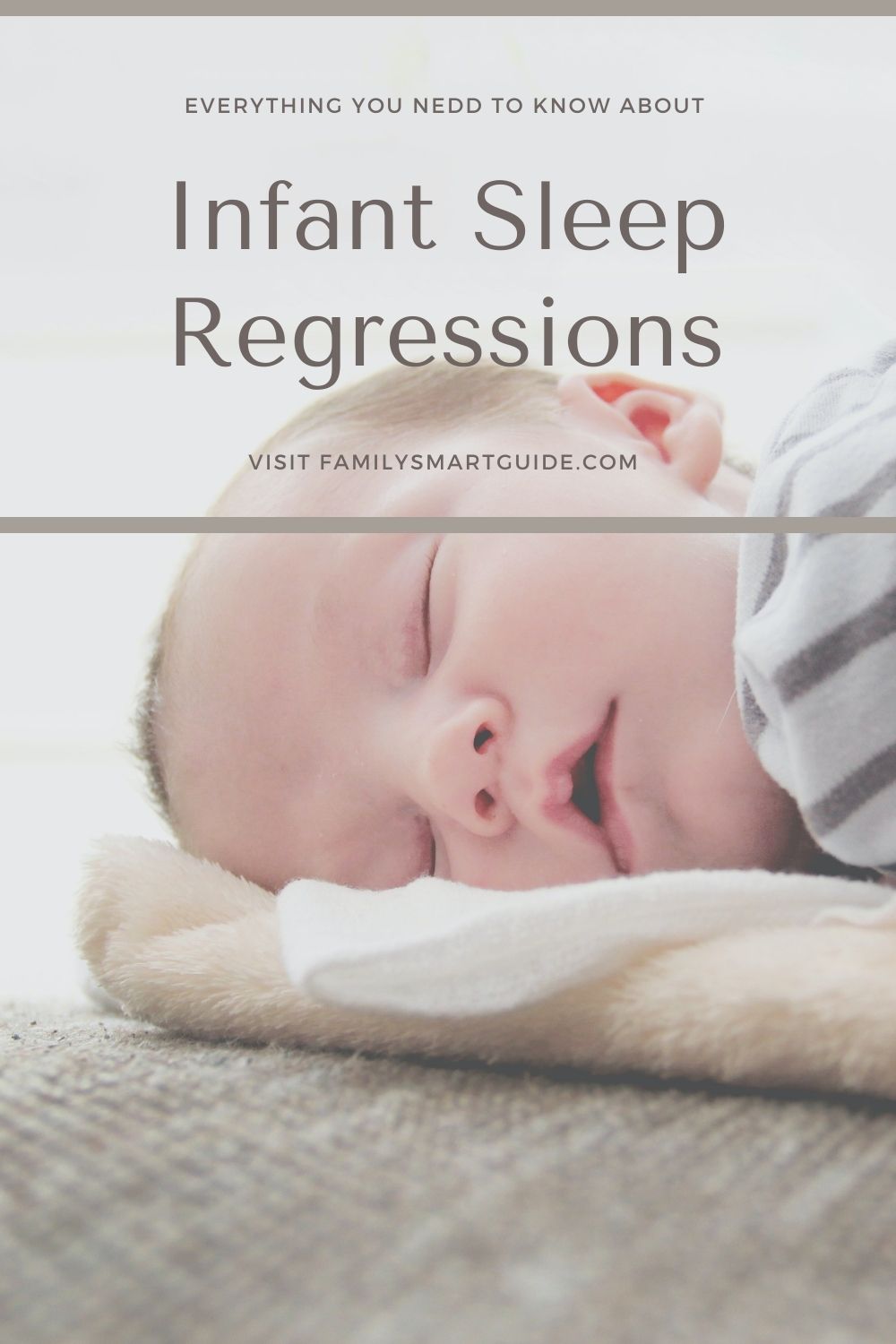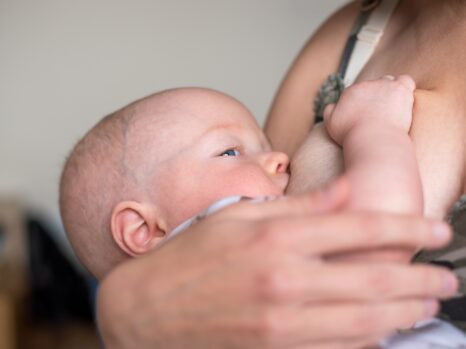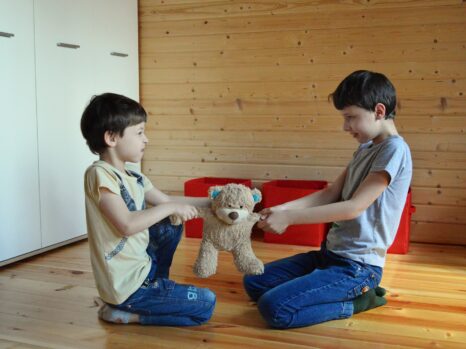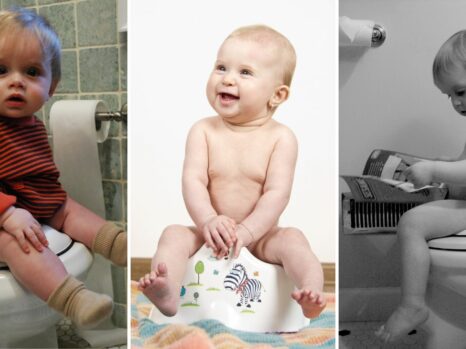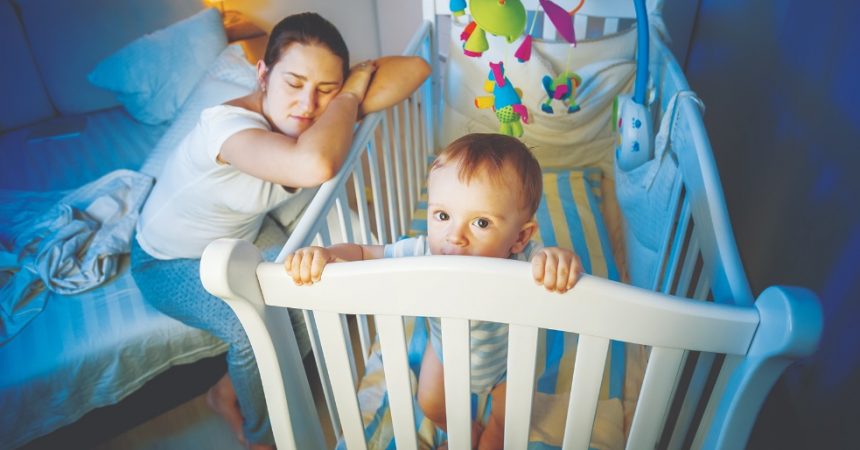Bedtime became a nightmare for them. They were finding it hard to stay awake but sleeping, also, wasn’t an option for them.
They were turning into nocturnal beings because of a minor issue, at least they thought. Oh, how they wished for just ten minutes of quietness! If only they could have that, at least for one night.
Shawn and her husband, James, were nervous, worried and stressed because Sharon, their one-year-old baby, was suddenly finding it hard to sleep at night.
Aside from her frequent but short-interval nap time during the day, she hardly blinked her eyes throughout the night and if by chance, they finally get her to sleep, it only lasted for a brief moment. Mom and dad were exhausted, and Sharon wasn’t looking like a happy baby.
At four weeks thereabout, she didn’t sleep for 18 hours on end!
James’ grandmother, Mrs Erica, a mother of 4 and umpteen grandchildren, had tried all her “ancient” baby nursing skills all to no avail.
Baby Sharon wouldn’t even close her eyes for a second. Somehow, that passed, and she finally got to sleep. Whew! And now, after a few months, she’s having trouble sleeping again. Shawn and James began looking at possible ways to help their child.
Just like with Shawn and James, you might be one of those many other parents of newborns who are finding it hard to put their little ones to sleep.
Perhaps, in search of an answer, you’ve set out on the internet and found this page. Worry not. You are not alone. It’s just a phase, and I’m here to help you with the necessary things you need to know about it.
Infants usually sleep a lot and irregularly too. They could sleep up to 18 hours during the early months. This usually happens for the most part, in the day.
Because of this tendency, you probably would have sometimes heard that infants usually mistake the day for night and vice versa.
This is true. In scientific terms, this is because the circadian timing system responsible for the regulation of sleep and the sleep-wake cycle is still undergoing development in them.

Research studies have revealed that their intense sleeping activity is associated with the advancement of their central nervous system (CNS), cognitive development, psychomotor and temperamental growth as well as their overall functioning.
At a point, this intense sleeping habit begins to degrade. So, medically, when babies start to experience a decline in their usual sleeping pattern, they are said to have a sleep regression.
Sleep regression is that time when your baby’s sleep pattern changes/shifts. At some point, you might notice that your baby who sleeps well on a norm is now having trouble sleeping. Weird, right?
It’s the effect of sleep regression. At this time, your baby wakes up at night and finds it hard to go back to bed. It is an entirely normal phase and would go with time and consistent routines.
Your baby might be picking up new habits, skills or might be trying to adjust to the environment, so her body is trying to manoeuvre its way through it.
It occurs at different times during a baby’s development and is usually marked during the first year of life as it is this time that their brains undergo the most dramatic changes.
The sleeping pattern in infants is highly variable, and as a result, not every baby will experience a sleep regression within the same timeline.
It is helpful to think of your baby’s sleep regression as a road bump with more road bumps during the early months and lesser bumps as they grow older. Of course, these bump experiences aren’t pleasant. However, they are periods of reasonable concern.
During the first four months, sleep regression may occur due to changes in their sleeping styles. At this time, newborns sleep actively and are said to have a Rapid Eye Movement (REM) sleep for fifty per cent of their total sleep time.
This is essential for brain maturation and cognitive development. However, somewhere between 5 to 24 months, changes in their sleeping pattern are often a result of their physical, mental and social development.
It is a trend in 12-month olds to experience some set back to their sleeping routine no matter how great a sleeper they were previously. Ideally, it is expected that as infants grow, their total sleeping time decrease while their sleeping periods increase.
At 12 months, babies often sleep a total of 11-14 hours and on the average, observe a sleep period of 8-9 hours. Given this, it is safe to anticipate fewer naps during the day and “sleep-through” nights, but it doesn’t always happen that way.
The 12-month sleep regression usually occurs towards the baby’s first birthday, but some children begin to experience it around the tenth or eleventh month.
To understand more about sleep regression, it is good you know what causes it. It is difficult to say for sure the exact cause of a 12-month sleep regression bearing the wide range of development one-year-olds experience.
However, pediatric sleep consultants and sleep experts often attribute 12-month sleeping regression to;
- Cognitive and behavioural development, often associated with separation anxiety.
- Psychomotor development, as expressed through hyperactivity/restlessness.
- Teething and related pains and discomfort.
- Change in sleep patterns, sleep schedule or sleep training.
- REM sleep.
Here’s a little information about REM sleep
REM Sleep
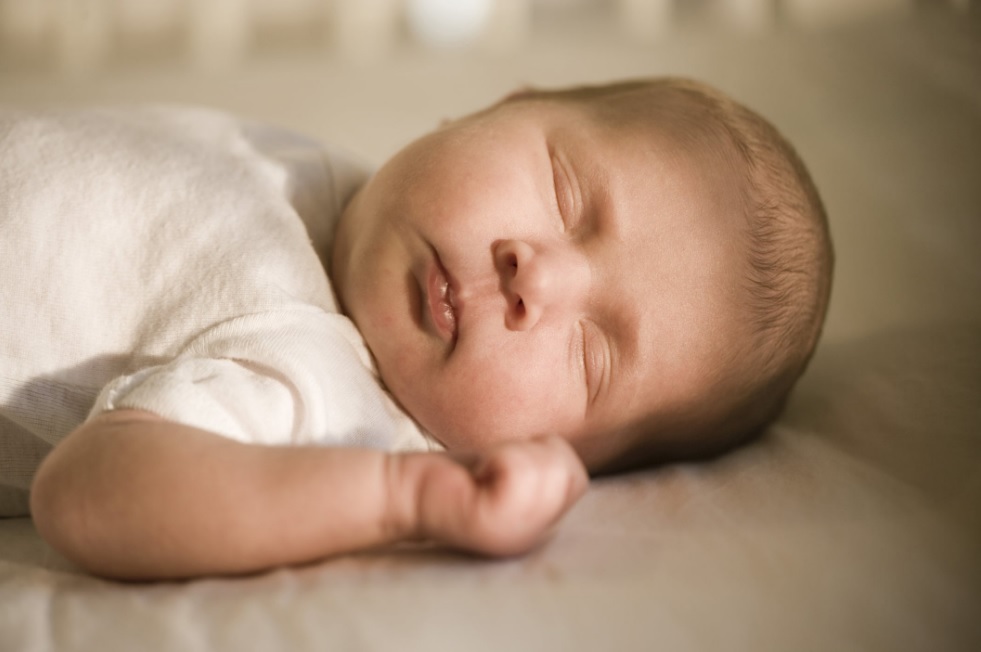
Infants, two months and older, usually experience rapid eye movement or active sleeping. This is essential for brain development.
The first year of life is a time of substantial change in the development of both the human brain and sleep; a critical process where the development of the CNS (Central Nervous System) feeds off how well a baby sleeps.
During REM sleep in babies, as opposed to adults, their skeletal muscles are not paralyzed. And so sucking, slight twitches, grunts, cries, tremors, grimaces, smiles and limb movements may be made while your baby is asleep!
So it appears that you are probably interrupting your child’s sleep when they grunt or cry over the night.
Next time your 1-year-old wakes up at night crying, I recommend you hesitate a little. A waiting time between three and five minutes will be sufficient.
This would help you ascertain whether they need you to help out or they are just transitioning between sleep cycles.
Studies have shown the relationship between teething and sleep. Let’s see more on that.
Teething and Sleep

Infants often grow their teeth over an average period of 3 years. It often happens in intervals, and as many as four teeth could erupt all at once!
Although teething may not directly affect sleep in infants, they could “prey” on their bad sleeping habits.
Such that, when they suddenly wake up during the night and cannot self soothe, their aching gums would make the situation much worse.
So it’s wise and safe that parents prepare to help their children ease teething pain during the day and at night when they go to sleep.
Here are ways to get around this:
Get A Baby Pain Reliever Handy
Medicated remedies such as baby pain relievers are often very effective in helping infants cope when teething.
However, care must be taken to ensure that safe/trusted drugs are administered. For example, the US Food and Drug Administration (FDA) has warned against the use of Benzocaine for infants and children under the age of two.
It is also essential when you get a safe, trusted medicated remedy, you administer them at the right time to avoid interfering with your baby’s sleep.
- Teethers
Teethers are baby’s toys often fluid or gel-filled that provide relief for their aching gums. Please note that it shouldn’t be frozen because it could damage your baby’s gum.
They could take different forms, shapes and sizes. You can make one for yourself! It’s easy.
Your home-remedy-go-to teether may be a wet/cold washcloth, a toothbrush, sock with ice ships, or natural rubber teethers!
You only need to be careful that any go-to solution used isn’t one that may be ripped off while your baby munches on them. You also need to make sure that the teethers are not long enough to choke your baby.
Teething is less painful once things are set in their place. Keeping your medicated, rubber, or any of your home-remedy-go-to teethers handy will ensure that your child has a smooth teething and sleep experience as possible.
SIGNS OF INFANT SLEEP REGRESSION
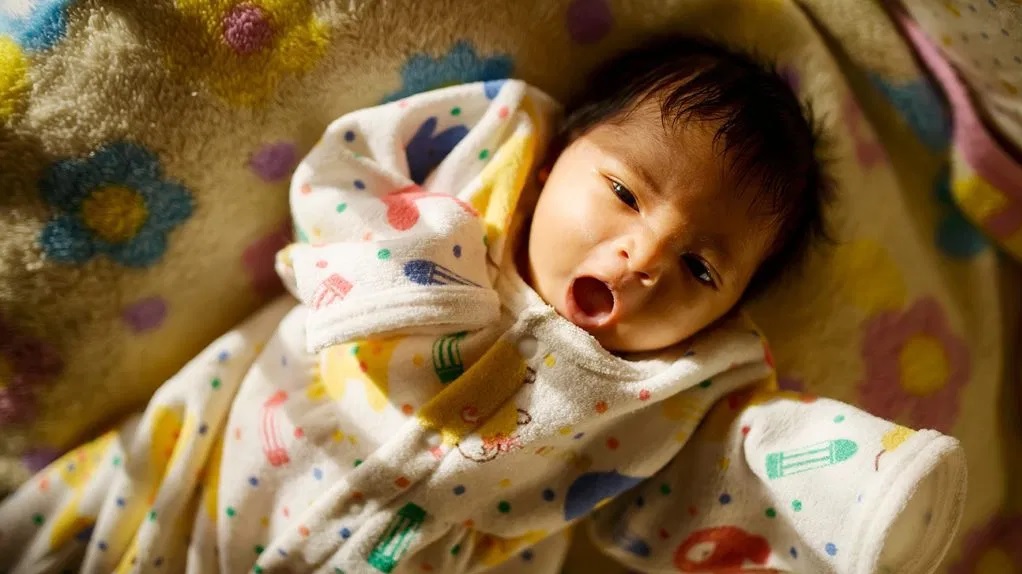
How would you know if your baby is experiencing sleep regression? Of course, it comes with signs that you should do well to note. Your baby might exhibit one or more of these:
Longer Naps During the Day
Before now, your baby slept so soundly both at night and during the day, but due to this recent development, their sleep at night has been affected. The body would try to balance this, thereby causing your child to take longer naps during the day to make up for the loss of sleep at night.
Frequent Night Waking
During the period of sleep regression, your baby begins to wake up at night, and when she does, it becomes almost impossible to go back to bed.
Inability To Sleep; Crying and Crankiness at Nights
Babies are naturally cranky and fussy. But when it becomes increased all of a sudden, with no apparent reason and it begins to affect their sleep, then that’s a good sign of sleep regression.
HOW LONG DOES INFANT SLEEP REGRESSION LAST?
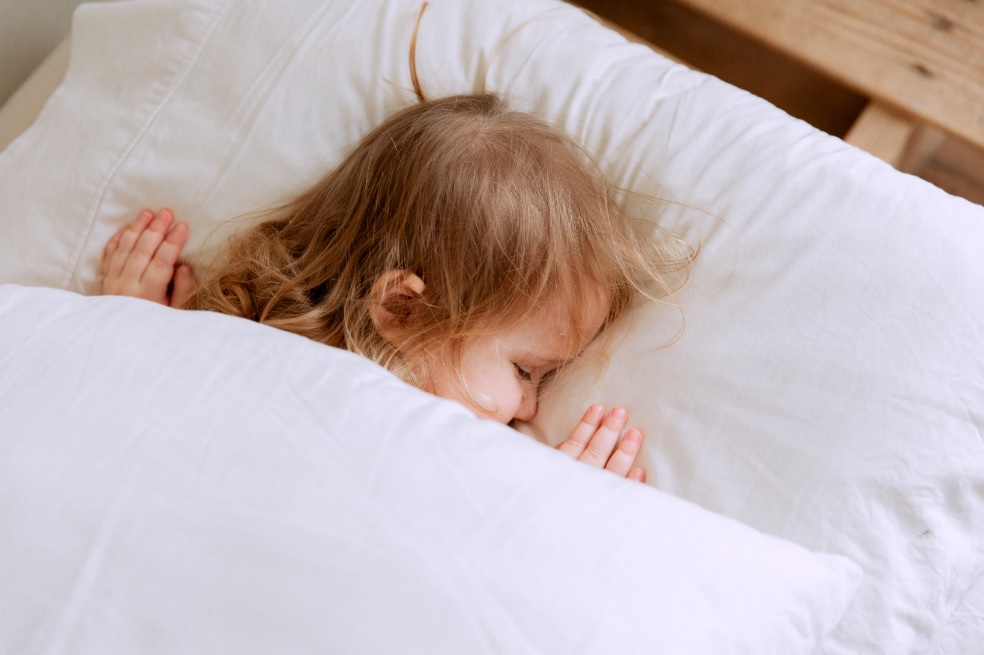
A regression implies that something is temporary and would soon go back to its usual pattern. This tells that the 12-month sleep regression is temporary.
It usually fades within a few weeks, depending on your child’s needs. The normal range is around 3 to 4 weeks.
Adjustments to a one-year-old sleeping environment, sleep habits and activity have proven to be instrumental in addressing their sleep regression.
It is crucial that you also take care not to carry over any excessive habits you adopted during the sleep regression, e.g. rocking, picking, patting to sleep. If you do, you might bring up a whole new sleep challenge even after the regression.
INFANT SLEEP SCHEDULE
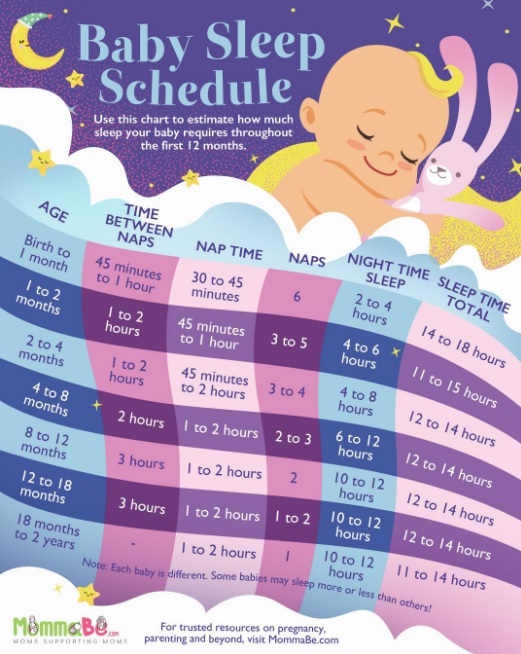
A 12-month old sleep schedule is a timetable or time-based plan of events; a well-organized and written plan that specifies what periods your baby would take their daytime naps and night time’s rest.
Keeping a schedule is essential for the quality control of your baby’s sleep. It is expected that one-year-olds sleep up to 14 total hours daily with an appropriate awake-time before each successive sleep, up to three and the half hours.
As you plan your 12-month old sleep schedule, it is helpful to know that the trend for one-year-olds rests between two and three hours of sleep during day split over two naps and a total of 10-12 hours each night.
The exact timing may vary depending on what works for each parent. As infants grow, day naps may be reduced to one long nap a day with up to 14 hours of night sleep.
Sometimes, they might refuse to take their naps. This shouldn’t be mistaken for the fact that they don’t need them as it can lead to overtiredness, grouchiness and irritability.
For children attending daycare centres, it is a commonplace to reduce naps in infants 12 months and older to once a day.
However, you could work around this. Also letting them get enough sleep during the weekend could make up lost sleep during the week.
HOW TO DEAL WITH SEPARATION ANXIETY IN BABIES

Babies, after their first birthday, unlike the beginning months of their life, have heightened social and mental senses.
You would have noticed that unlike before, laying your baby down now would make them cry and be generally uncomfortable. This is because they think you are leaving them. That’s them saying “Mom, dad… please don’t leave me.” This is on a lighter note anyway.
Separation anxiety is a psychological condition in some children (usually between ages one to five) are characterized by apprehension when separated from their parents.
They may cry, fuss or do just about anything that expresses their nervousness, worry and insecurity. Usually, many parents prefer to succumb to their child’s fears. It is understandable, but it is not the best route to take.
You would find that you’re only making your baby’s separation anxiety worse.
Helping your child overcome their separation anxiety could be a challenging but gratifying process They learn to become independent, and yes, they can also soothe themselves when they wake up at nighttime.
To navigate through this process, here are some helpful tips;
Try Staying Away at Intervals
This could be done by avoiding excessive contact with your baby. For example, when checking up on them or observing your bedtime routine, avoid getting too close to them, especially when they are about to sleep or else they might be too clingy.
Also, putting them in the crib while they are drowsy will help them learn to form connections with their crib, sleep-wise and consequently boost sleeping independently.
The chair method sleep training technique is beneficial here; you stay a distance farther each time they want to get some sleep to make them feel comfortable.
Soon enough, you wouldn’t need to be around them before they begin to sleep by themselves.
Expose Them More to Other Trusted People and Environment
It might seem hard at first, but with time, they would grow to be comfortable around others and caregivers when you are not physically present. A handy tip to help when they are in new environments is to trying keeping it familiar.
This could be achieved by bringing along their toys, babysitter or about anything at all that reminds them of a friendly environment. It will keep things relatively calm.
Practice After-Nap/Feeding Separation
Research shows that children are more likely to exhibit separation anxiety when they are hungry or tired. Practicing after-nap/feeding separation will do a great deal in helping your child develop confidence when you are absent.
Avoid Anxiety Triggers and Maintain A Consistent Goodbye Routine
Anxiety trigger is a term I use to try to explain factors that could make babies start to feel uncomfortable.
Anxiety triggers are actions often well-meant that cause them to feel unsafe. It could be as simple as turning on the light when checking up on them or frequently taking them out of bed while they sleep.
It is equally important to maintain a consistent goodbye routine, such as a wave, kiss, or a broad smile that fosters comfort; this is to help them feel reassured, calm, and relaxed.
Again, I would say that there’s no clear-cut in dealing with sleep regression in 12-month olds. It is often the appropriate time to incorporate and strengthen good sleep habits in them.
Depending on preference, parents could decide to sleep-train their children or not. The decision depends on you and your family.
Whichever path your family chooses is acceptable so far as it works out. The goal is to prevent possible sleeping problems in the future as much as you can.
Here are some of the best practices;
Develop A Bedtime Routine and Stick To It
You might have heard this before. Yes, it is true. Sticking with a bedtime routine will help your baby understand that it is time to sleep.
A good practice should include giving your baby a good bath, cleaning their dirty diapers, massage, getting them on their jammies or swaddle, feeding, singing lullabies or any other calming activity of your choice in so far it doesn’t involve unhealthy sleeping associations.
It is vital to keep your bedtime routine consistent as it helps your baby’s brain associate these activities with sleep.
Keep Them Actively Engaged During The Day
A fundamental system that controls adults, including babies’ sleep-wake cycle, is the circadian timing system. It is regulated by the Central Nervous System, which also includes the brain.
By keeping your child actively engaged (this may include playing with their toys, cruising around etc.) and adequately exposed to sunlight (especially in the morning), you can successfully contribute to building healthy circadian rhythm that strengthens sleep in them at night.
Keep A Sleep-Friendly Environment
It is okay to have one or two of your baby’s favorite toys/loveys in their crib in so far as they are not potential sources of danger to them, a source of restlessness or distraction during a nighttime waking.
Other safety measures to keep a sleep-friendly environment involve turning on ambient noise, turning off the lights, and other stimulants that could prevent them from falling asleep, staying asleep, or self-soothing.
Develop Positive Sleep Associations
Sleep associations in the simplest definition are actions that help babies fall asleep. Sometimes parents try to help infants sleep. This is normal, expected, and great, but it is not advisable for infants three months and older.
This is because, after three months, your baby begins to relate better with their environment, and as we already established, they experience cognitive development.
So if you’ve been nursing, rocking, bouncing, holding your baby to sleep or you have been engaging in any form of activity to help them sleep after these months, you’re indirectly building a negative sleep association.
Yes, it seems like you are trying to help them, but it is often counterproductive in the long run because they would not be able to sleep independently without needing your help.
To solve the problem of negative sleeping associations in one-year-olds, you need to develop habits that focus on getting them to sleep by themselves rather than intervention directly. It is proven that babies have the intuition to sleep independently, so parents only have to help them unlock this intuitive skill.
You could help them by letting them develop activities that help them self-soothe when they suddenly wake up at night or when they are about to go to sleep. These activities include:
- Humming.
- Singing.
- Rocking themselves back and forth.
- Sucking on their thumb or fingers.
- Banging their feet against the crib’s mattress.
- Keeping a favorite toy.
And more.
It is worthy to note that engaging in these activities does not give a 100 percent guarantee that the sleeping regress in your one-year-old would go away at once.
However, they are proven steps to help them on the path to better sleeping. While you observe all of this, you must maintain a patient and optimistic outlook.
Your Welfare As A Parent

Parents are often overwhelmed by their baby’s sleep regression and associated problems that they forget about their welfare. It is excellent for a parent to show affection and love for your infant.
At the same time, you must be easy on yourself. You both will be fine; it is only a fleeting issue. It will pass.
As a parent, you need to be realistic, patient, and calm about your expectations. Try as much as you can to get a good rest when you can. Avoid over worrying too.
The sleep regression should fade in some weeks, but if it doesn’t, and you notice some changes in your baby’s health, do not hesitate to contact your pediatrician. Changes to look out for includes:
- Not Gaining Weight: Sleep regression doesn’t cause weight loss. Rather lack of weight gain in babies is associated with poor feeding, illness such as the flu, etc.
- Respiratory Problems: This includes abnormal breathing patterns and even snoring while sleeping. It isn’t normal for babies to snore while sleeping.
- Excretory Issues: 12–month sleep regression doesn’t make babies excrete more or less; it doesn’t manipulate excretion.
Monitor these changes and other irregularities that may come up and report them as quickly as possible.
